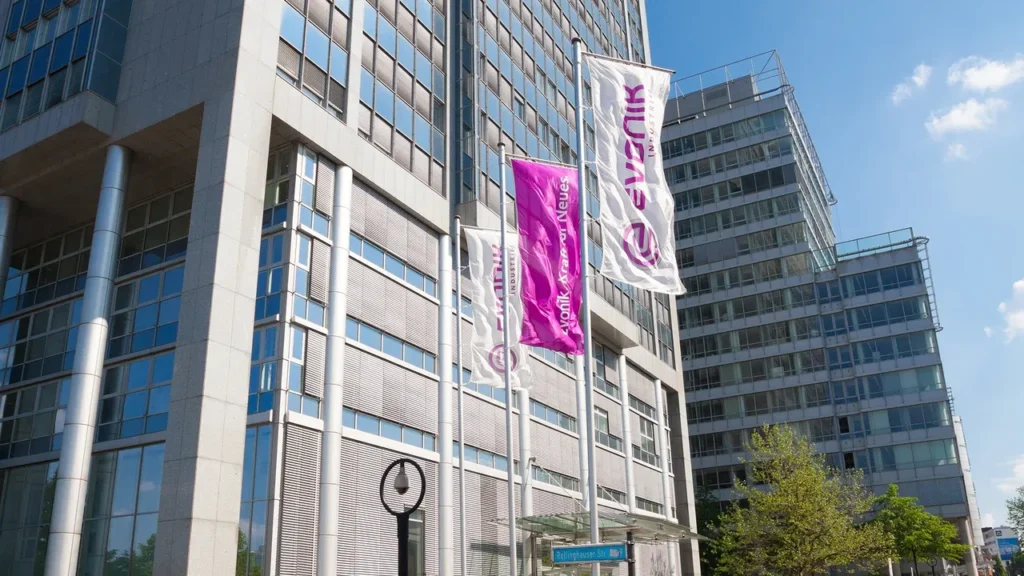German specialty chemicals company Evonik Industries has voiced support for the government’s ambitious German infrastructure fund and economic stimulus plans, while urging greater transparency on how and when the funds will be implemented. The initiative, worth €500 billion, aims to boost economic resilience, revitalize public infrastructure, and stimulate private investment across the nation.
Government’s €500 Billion Investment Plan
In a move designed to counter sluggish growth and industrial uncertainty, the German government recently announced a sweeping stimulus package that includes a €500 billion infrastructure fund and a €46 billion tax relief plan extending through 2029. Together, these measures represent one of the largest fiscal efforts in Germany’s modern history to support businesses and households struggling with high energy costs and weak demand.
The government hopes this multi-year initiative will modernize transportation networks, upgrade digital infrastructure, accelerate the green transition, and strengthen industrial competitiveness. According to early estimates, the infrastructure fund could add up to 1% to Germany’s gross domestic product annually once fully deployed.
Evonik’s Strategic View on the Infrastructure Fund
Evonik Industries AG, one of Europe’s leading chemical producers, welcomed the fund as a necessary step to stimulate demand in key downstream industries such as construction, automotive manufacturing, and consumer goods. The company emphasized that infrastructure investment would directly benefit suppliers of advanced materials, insulation additives, and coating solutions — core areas of Evonik’s product portfolio.
“Increased public investment in construction and energy efficiency could substantially raise the demand for our specialty materials,” an Evonik spokesperson said in a written statement. “We view this as a positive signal for the industrial sector and for consumer confidence across Europe.”
Expected Benefits to Evonik’s Business
Evonik supplies a broad range of materials used in modern infrastructure and housing projects, including:
- Coating additives that improve durability and protection for concrete and steel structures.
- Polyurethane foam additives used in thermal insulation and energy-efficient appliances.
- Polyamide 12 (PA12) for durable pipes and tubing essential in plumbing and industrial systems.
With the government pledging to channel billions of euros into construction, renewable energy, and urban development, Evonik expects a gradual rebound in demand for its materials over the coming years. The company has also projected approximately €30 million in cost savings starting in 2026 as a result of lower energy taxes included in the stimulus package.
Consumer Confidence and Market Sentiment

Beyond its direct impact on industry, Evonik believes that the infrastructure fund could strengthen consumer sentiment — a crucial factor for economic recovery. Germany’s consumer confidence index, measured by GfK, has remained deeply negative at -24.1 in November, reflecting continued pessimism about household income and spending power.
“Fiscal measures that improve job security and accelerate public projects can have a multiplier effect on consumer confidence,” Evonik noted. “A more optimistic outlook among consumers supports long-term stability in demand for construction and household products.”
However, economists caution that the fund’s success depends on swift implementation and effective management. Germany’s past infrastructure programs have sometimes been delayed by complex approval processes and regional disputes over funding allocation.
Evonik’s Q3 Results Reflect Broader Market Challenges
The company’s latest financial results underscore the need for renewed industrial momentum. In its third-quarter report released earlier the same day, Evonik announced that its core earnings had dropped 22% year-on-year, primarily due to weak demand across Europe and Asia. Declining sales volumes in construction chemicals and specialty plastics weighed heavily on margins.
Management expressed optimism that the infrastructure fund could help offset some of these pressures by reinvigorating domestic demand. “Although global markets remain challenging, initiatives like this one can stimulate industrial activity and attract private investment,” the company said.
Unresolved Questions About the Fund’s Implementation
While welcoming the government’s plan, Evonik stressed that several key aspects of the German infrastructure fund remain unclear. These include:
- Timeline: When exactly the first disbursements will begin and how quickly projects can break ground.
- Geographical allocation: Whether the entire €500 billion will be spent within Germany or partly distributed to EU-level initiatives.
- Administrative efficiency: How federal and regional authorities will coordinate project approvals to avoid bureaucratic bottlenecks.
“The timeline and implementation details are decisive,” Evonik emphasized. “Without clarity, companies cannot plan effectively or commit new investments aligned with the government’s goals.”
Potential Impact on the German Economy
According to preliminary assessments, the infrastructure fund could lift Germany’s GDP growth by approximately 1% annually if funds are deployed efficiently. The German Chemical Industry Association (VCI) also expressed cautious optimism, saying that the fiscal stimulus “should enable moderate economic growth” after two years of stagnation. “This could also lead to a rise in demand for chemical products,” the VCI added.
Balancing Growth and Fiscal Responsibility
Despite broad industry support, some analysts warn that managing such a massive fund poses significant fiscal and logistical challenges. Germany’s strict debt brake laws limit new borrowing, meaning the government will likely use a mix of public-private partnerships and reallocation of existing budgets to finance the initiative. Balancing fiscal discipline with growth stimulation will require careful oversight and transparent reporting.
Evonik, like many industrial players, hopes that the fund will focus on projects that create lasting productivity gains rather than short-term political visibility. Investments in renewable energy, digital infrastructure, logistics, and sustainable housing are seen as the most promising drivers of long-term competitiveness.
Outlook: Opportunity Amid Uncertainty
Evonik remains cautiously optimistic about Germany’s economic direction heading into 2026. The company expects the dual effect of tax relief and infrastructure spending to gradually improve industrial conditions, particularly if energy prices stabilize and export markets recover. However, it also acknowledges that structural reforms and regulatory simplification will be necessary to fully realize the benefits of the stimulus plan.
“The infrastructure fund sends a strong signal of commitment to Germany’s industrial base,” Evonik concluded. “But for it to succeed, we need clear guidelines, efficient execution, and coordination between policymakers and industry.”
As Europe’s largest economy embarks on this massive public investment journey, Evonik’s message reflects a broader sentiment among manufacturers: enthusiasm for growth potential tempered by calls for clarity, speed, and accountability.



